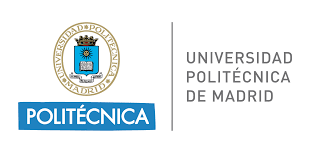Fibre Reinforced Concrete for Structural Applications (8.ª edición)
0,00€
The course follows an increasing complexity order. It will start with an Introduction to the concept of fibre reinforced concrete (FRC) and recent applications with the experience of specialists. The structural capacities of the structural fibres will be studied in depth as well as glass fibre reinforced concrete. Finally, the use of FRC in combination with other high-perfomance concrete types will be assessed.
Taught by:

- Descripción
- Información adicional
- Valoraciones (0)
- Información del vendedor
- Más productos
The use of fibres in concrete has become an attractive solution to substitute the conventional bar reinforcement. The advance in research and the appearance of new materials and codes with structural requirements has allowed fibre reinforced concrete (FRC) to progress. That is to say, if certain requirements are met with steel or plastic fibres, their contributions can be considered in the structural design with the use of an improved composite material with outstanding ductility. The course entitled Fibre Reinforced Concrete (FRC) for Structural Applications follows an increasing complexity order. Such a sequence permits the student to obtain high-level knowledge at the end of the course and maintain initial motivation. Therefore, the first module will offer a concise introduction to the concepts of FRC and structural fibres. Such initial concepts will support the following and second module, in which real and recent applications of FRC will be reviewed with the experience of specialists and Sika expertise. The third module, which is the most technical one, will review the structural capacities of steel and polyolefin fibres. Such fibre types are those commonly named structural fibres. Following the sequence, the fourth module will provide updated knowledge about glass fibre reinforced concrete. In order to conclude the course, the fifth module will offer a complete overview of the use of FRC in combination with other high-perfomance concrete types such as self-compacting concrete and high-strength concrete.
Course registration allows you to view the content free of charge and complete the assessment activities.
The acquisition of the Certificate of Completion is optional and will be available within the course.
Duration: 50 hours of study
Start: 31st October 2022
End: 4th December 2022
Target audience:
- Professionals and students who are interested and have previous knowledge of Construction and Building Materials, Physics applied to materials, Concrete: material and structures. In addition it is recommended: Comprehension English skill, basic concepts about: chemistry of cement, fracture mechanics and composite materials.
Learning goals:
- Introduce the concept of fibre reinforced concrete (FRC) and recent applications with the experience of specialists.
- To study in depth the structural capacities of the structural fibres as well as glass fibre reinforced concrete.
- Evaluate the use of FRC in combination with other types of high performance concrete.
Contents
- Module 0. Presentation
- Module 1. Introduction to fibre reinforced concrete and structural fibres
- Module 2. Applications of FRC
- Module 3. Structural Fibre Reinforced Concrete: SFRC And PFRC
- Module 4. Glass Fibre Reinforced Concrete (GRC)
- Module 5. High-Perfomance Concrete Combined With FRC
Teachers:
 |
Marcos García Alberti (Universidad Politécnica de Madrid) Professor in the Dept. of Civil Engineering: Construction of the School of Civil Engineering (ETSICCP) of the Polytechnic University of Madrid (UPM), where he coordinates the Project Teaching Unit and teaches the subjects Integrated Project Management and Direction, Risk Management, Innovation Management, Works Organisation, BIM Methodologies for Intelligent Construction Projects and Special Concretes. He holds a PhD in Civil Engineering from the UPM and belongs to the Research Group on Construction Technology and Materials Science for Building and Civil Works. His research area is focused on the numerical and experimental study of the behaviour of special concretes and other reinforcement materials. He has also developed recognised advances in studies of Sustainability in construction, as well as in the possibilities of BIM and Digitalisation in the sector. In recent years he has published numerous high impact articles, as well as contributions to conferences. He also has a complete professional experience in the sector (work, design, project and management), participating in various research agreements, among which several of state call (IP of 1 currently) and the direction of the University-Business Chair Calle 30 – UPM. |
 |
Alejandro Enfedaque (PhD) PhD in Civil Engineering. For more than 12 years he has been Professor of “Construction Materials” and “Innovation and Durability of Construction Materials” at the School of Civil Engineering of the Polytechnic University of Madrid. The areas of knowledge in which he develops his research are the study of mechanical behaviour, the simulation and generation of constitutive models and the evaluation and improvement of the durability of concrete. An important part of this work has been carried out on concretes with fibres for structural applications. Studies have also been carried out on the implementation and improvement of BIM methodology in Civil Engineering. The projects and studies carried out have given rise to more than 50 publications indexed in the Journal of Citation Reports (JCR) and a multitude of research projects both with public funding obtained in competitive calls and knowledge transfer with private companies. |
Información adicional
| Modalidad | MOOC |
|---|
Solo los usuarios registrados que hayan comprado este producto pueden hacer una valoración.



















Valoraciones
No hay valoraciones aún.